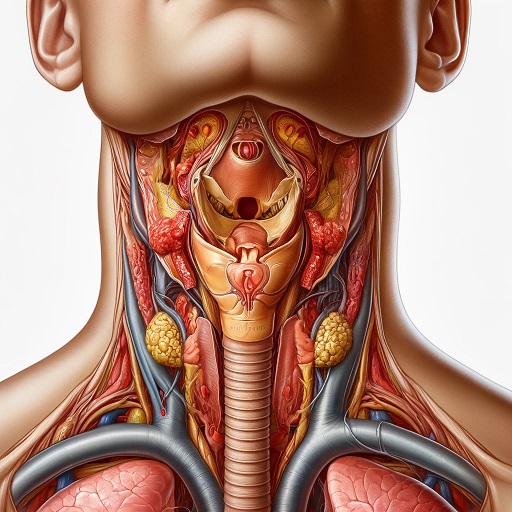
Globus sensation, commonly described as the feeling of a “lump in the throat,” is a prevalent condition that, while typically harmless, can cause significant discomfort and anxiety. Here we looks into the various causes, its potential impact on conditions like chronic cough, and effective strategies for diagnosis and management.
What is Globus Sensation?
Globus sensation is the persistent feeling of having a lump, blockage, or tightness in the throat without any actual physical impediment. This sensation does not generally interfere with swallowing, but it can be quite distressing and may fluctuate throughout the day, often worsening in stressful situations and improving when distracted.
Causes of Globus Sensation
Understanding the causes of globus sensation is crucial for effective treatment:
- Gastroesophageal Reflux Disease (GERD): This is a common trigger where stomach acids or non-acidic stomach contents flow back into the esophagus, irritating the throat.
- Psychological Factors: Stress and anxiety can significantly exacerbate the sensation, possibly due to increased laryngeal muscle tension.
- Muscular Dysfunction: Issues with the coordination of throat muscles during swallowing can contribute to the feeling of a lump.
- Enlarged Tonsils and Infections: Inflammation from conditions like tonsillitis or other throat infections can create a sensation of fullness or blockage.
- Serious Underlying Conditions: In rare cases, persistent globus sensation might be an indicator of more severe issues, such as throat or tongue cancers, necessitating comprehensive medical examinations.
Globus Sensation and Chronic Cough
The link between globus sensation and chronic cough is significant. The irritation or nerve sensitivity that contributes to globus sensation can also trigger a chronic cough – a reflex aimed at clearing what feels like an obstruction in the throat. This can be particularly frustrating as it forms a cycle of irritation that can aggravate the throat and intensify the sensation. Managing this aspect is crucial in treating patients with both globus sensation and chronic cough effectively.

Diagnosing the Cause of Globus Sensation
Proper diagnosis of globus sensation is pivotal and involves several steps:
- Thorough Clinical Examination: A doctor may look for physical causes such as swollen tonsils or signs of infection. Specialist input from a respiratory physician, ENT surgeon and gastroenterologist may be needed, often working as a team.
- Barium Swallow and Endoscopy: These procedures help visualise the esophagus and throat to check for abnormalities or signs of reflux.
- Laryngoscopy: This procedure allows visualisation of the nasal passages, throat and larynx including the vocal cords.
- Lifestyle and Symptom Review: Discussing diet, lifestyle, and emotional well-being can help identify triggers related to dietary habits or stress.
Management and Treatment
Effective management of globus sensation includes various approaches tailored to the underlying cause:
- Dietary Changes: Avoiding spicy foods, caffeine, and chocolate can help manage symptoms if GERD is a factor.
- Stress Management: Implementing stress reduction techniques such as yoga, meditation, or cognitive behavioral therapy can alleviate symptoms exacerbated by anxiety.
- Medical Treatments: Proton pump inhibitors or antacids may be prescribed if acid reflux is identified as a primary cause. In cases of psychological impact, counseling or anti-anxiety medications might be considered.
- Regular Monitoring and Consultation: Ongoing assessment with healthcare professionals interested in this area ensures that management strategies remain effective and are adjusted as needed.
Conclusion
Though often not indicative of a grave medical condition, globus sensation – the feeling of a lump in the throat – requires understanding and proper management to mitigate its impact on individuals’ quality of life. Recognising the various causes of chronic cough and implementing an effective treatment plan can provide significant relief when it is associated with chronic cough. Individuals experiencing persistent or severe symptoms should seek comprehensive evaluation from a pulmonologists, who may involve colleagues from the multi-disciplinary team, to rule out more serious conditions and receive tailored treatment.
GET IN TOUCH
Schedule a Visit with Dr Jose
Disclaimer: The information provided in this article is for informational purposes only and is not a substitute for professional medical advice, diagnosis, or treatment. Always seek the advice of your healthcare provider with any questions you may have regarding a medical condition or treatment.

